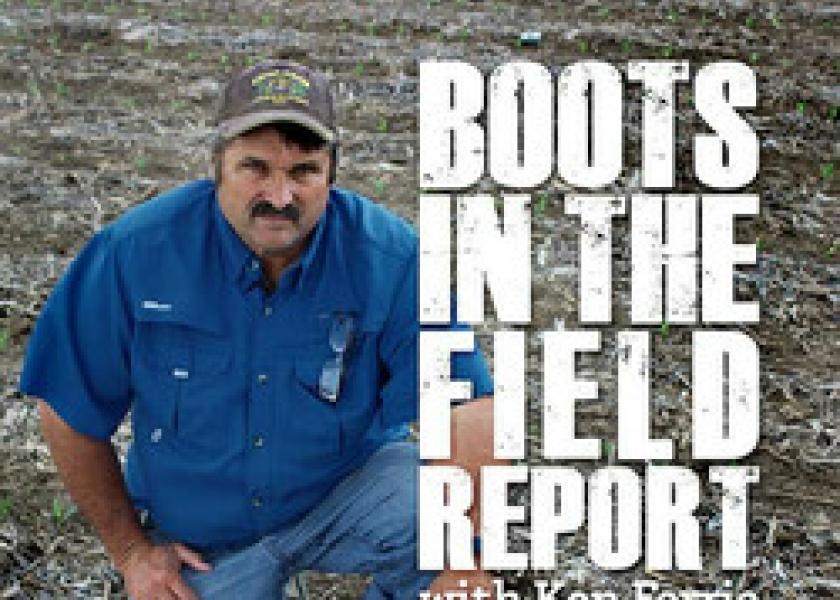Ferrie: Don’t Screw Up The 2021 Crop Just To Mark Anhydrous Applications Off Your To-Do List

In the past three weeks, Ken Ferrie says he’s seen a tremendous amount of anhydrous get applied on Illinois farms.
“I hope everyone was using a nitrification inhibitor as soil temperatures were popping above 60 degrees in this warm stretch,” says Ferrie, Farm Journal Field Agronomist and owner of Crop-Tech Consulting near Heyworth, Ill.
Ferrie notes that in most cases bars are sealing trenches well. However, in some especially dry areas he’s hearing complaints that that’s not always the case.
“Some of these fields are still gassing off 500 feet behind the machine,” he notes.
Ferrie’s guideline for assessing the situation is that once the bar passes, you should be able to drop down to your knees, smell the trench and not smell ammonia.
“If you're gagging for air when you do this, the bar’s not sealing,” he says.
You also should not be able to smell anhydrous when you're walking across the field after the application. One grower called in and told Ferrie he could still smell ammonia a day after application and was wondering how much anhydrous he lost as a result.
“My answer was we don't know, but it's substantial,” Ferrie says.
Other growers called in and asked why their N-Serve wasn’t stopping their anhydrous losses. Ferrie explained that N-Serve is a nitrification inhibitor, but it doesn’t stop volatility, which is the problem farmers are experiencing.
Instead, the anhydrous needs to find water in the soil to convert to ammonium to be stable. Ferrie notes there are some ‘tricks’ to decrease volatility.
“One trick to decrease the volatility is to decrease the rate of ammonia you’re putting on. Lower rates need less water,” he explains. “But you'll have to adjust the spring applications to square this rate back up.”
A second trick is to go deeper to expose the ammonia to more soil and more water.
“I know you retailers are cringing when I say that because, as I've been talking to some of you, this has been a bad year on shanks as a lot of guys are using the toolbars as subsoilers,” he notes.
Ferrie adds that if you are doing tillage or applying anhydrous where seagulls typically drop behind the tool to scoop up worms brought to the surface but they’re leaving and not coming back, that’s your tip the soil is leaking ammonia.
“They don’t like the smell of ammonia, either,” he says. “Bottom line, guys, if you find yourself holding your breath when you're switching tanks, the ground is leaking. Don't just keep running. Let's not screw up the 2021 crop just to get this marked off the to-do list,” he adds.
Along with Ferrie’s comments on anhydrous applications, he addresses fall tillage practices that can help you level-off fields, so you have more success planting early soybeans next spring. You also can get some practical recommendations on how to address waterhemp seed this fall and next season to prevent it from taking over fields and snuffing out your crop yield potential.
Get all of Ferrie’s practical and timely insights here:







